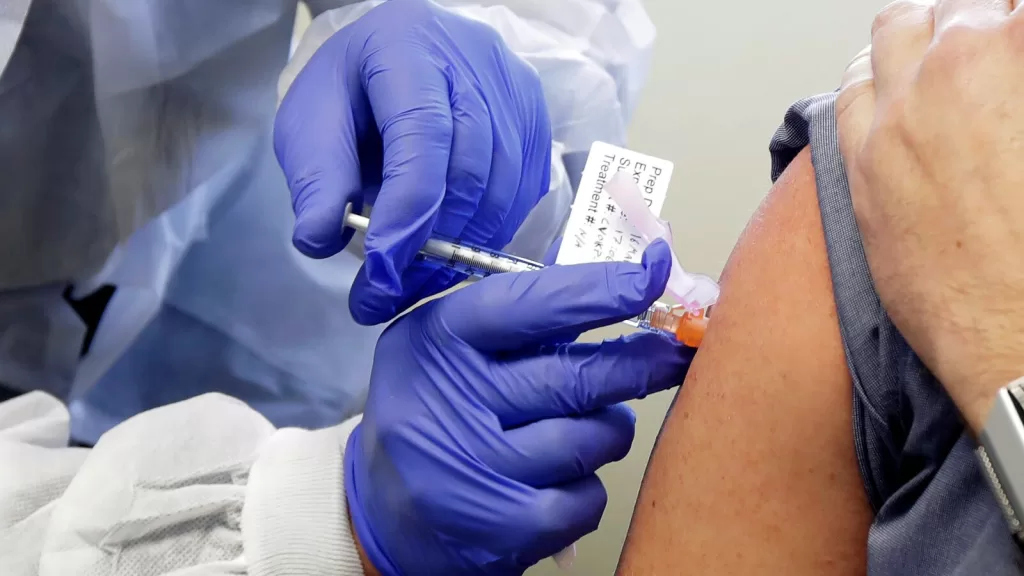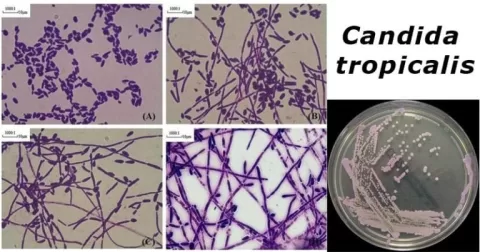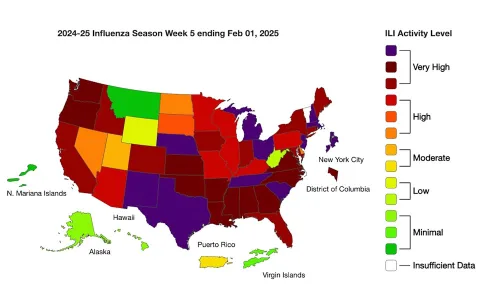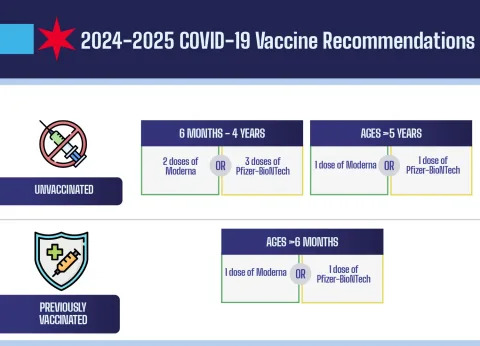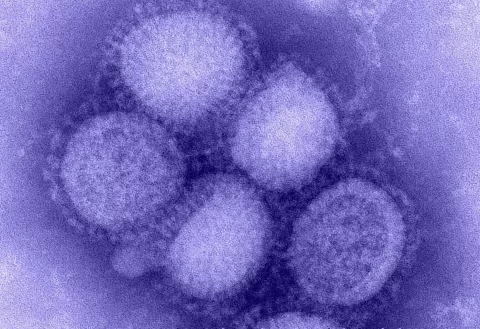The recent developments surrounding the COVID vaccine review have stirred significant conversation as the Centers for Disease Control and Prevention (CDC) vaccine advisory group introduces a new work group to evaluate the ongoing COVID-19 vaccine science. With issues such as COVID vaccine risks being brought to the forefront, this group is tasked with thoroughly weighing these aspects against the benefits, as highlighted by the Advisory Committee on Immunization Practices (ACIP). Notably, the leadership of this group has drawn scrutiny due to its stated opposition to COVID vaccines, fueling mRNA vaccine criticism from various sectors. Updates provided by the CDC indicate a focused commitment on reviewing complicated matters, including the impacts of repeated booster shots and learning from international vaccine policies. As the review process unfolds, the intersection of scientific inquiry and public perception remains a pivotal theme in the ongoing discourse surrounding vaccination efficacy and safety.
In light of the evolving landscape of vaccination strategies, the assessment of the coronavirus vaccine landscape is gaining momentum. The newly established task force from the CDC aims to delve into the rich tapestry of COVID-19 vaccine research, including a critical look at the risks associated with these immunizations. This committee, integral in the establishment of immunization protocols, serves as a platform for addressing concerns from both medical and public health perspectives. Amidst this scrutiny, members are expected to navigate the complexities of scientific evidence while balancing pressures from various advocacy groups. As debates around vaccine policies intensify, understanding the science behind these vaccines is essential for informed public discourse.
Understanding the Role of the CDC Vaccine Advisory Group
The CDC vaccine advisory group plays a crucial role in shaping vaccination policy in the United States. By evaluating the latest scientific findings related to vaccines, including the COVID-19 vaccines, this group aims to ensure public safety. They assess both the effectiveness and potential risks associated with these vaccines, which is especially important as new variants of the virus emerge. The ongoing work of the Advisory Committee on Immunization Practices (ACIP) reflects the complexities involved in maintaining public health while addressing diverse opinions in the scientific community.
Recently, the CDC has restructured its approach by introducing a new work group focused on reviewing COVID-19 vaccine science in greater depth. This development is intended to enhance the agency’s responsiveness to public apprehensions regarding vaccine safety and efficacy. However, critics argue that the group’s formation, particularly its leadership by those who have openly questioned the safety of COVID-19 vaccines, could potentially undermine the credibility of its findings. The balance between thorough investigation and bias is a focal point of discussion surrounding the new group.
The New COVID Vaccine Review: Implications and Concerns
The new COVID vaccine review, spearheaded by Retsef Levi, PhD, raises significant implications for how vaccine data is interpreted and disseminated to the public. Levi, who has been vocal about his opposition to mRNA vaccines, leads a group that may adopt a critical stance towards the benefits often highlighted in CDC reports. This change in oversight could affect public trust in the vaccine rollout and the recommendations made by the CDC going forward, especially if the group’s findings diverge from established vaccine guidance.
There is concern about whether the new review will be thoroughly scientific or will lean towards selective reporting of data to align with anti-vaccine sentiments. Critics, including infectious disease specialists, warn that the integrity of the review process may be compromised, resulting in skewed conclusions that could mislead policymakers and the general public. The balance between scientific rigor and advocacy is an ongoing debate that might influence future vaccinations and public health strategies.
Public Perception of the COVID-19 Vaccine: Legal and Ethical Considerations
Public perception of the COVID-19 vaccine is heavily influenced by the ongoing discourse surrounding safety and efficacy. Legal and ethical considerations come to the forefront when discussing mandatory vaccinations and public health policies. The legal framework surrounding vaccine mandates is designed to protect public health, but it must also respect individual rights. Balancing these aspects is crucial as society navigates through vaccine hesitance stemming from misinformation and anecdotal experiences.
Ethically, the question of whether pharmaceutical companies and government bodies are acting in the best interest of public safety also arises. Vaccine manufacturers must ensure transparent communication regarding potential risks associated with COVID-19 vaccines, while also advocating for their benefits. As we reflect on the motivations behind vaccine hesitance, engaging in open dialogue is vital to reestablishing trust among communities wary of governmental guidance, especially in light of recent controversies surrounding vaccine reviews.
The Impact of mRNA Vaccine Criticism on Public Health
Criticism surrounding mRNA vaccines has cultivated skepticism among certain segments of the public. The emergence of high-profile critics, like Robert Malone, has added to the dialogues questioning the safety and efficacy of these vaccines. This criticism can significantly impact vaccination rates if influential voices convey distrust that resonates with individuals hesitant about receiving their shots. Public health officials are increasingly tasked with countering misinformation while promoting factual information about the advances in vaccine technology.
The challenge for public health agencies is to create a strategy that addresses these criticisms while reassuring the public about vaccine safety. Educational initiatives that involve transparent discussions and factual evidence are essential in dispelling fears. Additionally, the importance of community leaders and healthcare professionals in cultivating a supportive environment for vaccinations cannot be understated. Their roles are key in bridging the gap between scientific evidence and public understanding.
ACIP Work Group Dynamics: Shifts and Challenges
The dynamics within the Advisory Committee on Immunization Practices (ACIP) have shifted significantly with the introduction of new work groups focusing on specific vaccine-related topics. By examining the cumulative effects of vaccinations on younger populations, the committee aims to refine and improve vaccine schedules, particularly where childhood vaccines are concerned. However, the exclusion of certain medical organizations from participating raises questions about potential biases in the recommendations.
Moreover, the restructuring could lead to increased tensions within the ACIP, as varying perspectives emerge, particularly regarding long-established vaccines versus newer COVID-19 vaccines. This tension may also be amplified by the existing divide between pro-vaccine advocates and those maintaining critical stances toward recent vaccination policies. Ultimately, how the ACIP navigates these challenges will be crucial in maintaining public trust in vaccination efforts moving forward.
Safety Concerns in the Wake of COVID-19 Vaccine Rollout
Concerns about the safety implications of the COVID-19 vaccine rollout remain a focal point for many people. As reports of adverse effects circulate, it becomes essential for health authorities to transparently address these issues without dismissing valid concerns. Continuous monitoring and reporting on vaccine-related incidents must be prioritized to inform the public accurately and uphold confidence in vaccine programs.
Additionally, clear messaging on what constitutes a legitimate side effect versus rare occurrences can help mitigate fears. Public health authorities need to educate families about the importance of vaccination in preventing severe illness, while simultaneously providing reassurance regarding the rigorous testing and monitoring processes vaccines undergo prior to authorization. For lasting positive effects on public health, this dual approach is necessary to cultivate an informed community.
Navigating the Landscape of Vaccine Communication Strategies
Effective communication strategies are pivotal in promoting vaccine uptake, especially in a landscape fraught with misinformation. Public health messaging must be clear, consistent, and adaptable to evolving data regarding the COVID-19 vaccines. The questioning of efficacy and safety, especially following high-profile critiques, necessitates a reevaluation of how messaging is framed to ensure it resonates with diverse audiences.
Engaging with community leaders and health professionals can enhance trust and provide a platform for open dialogue. Utilizing social media responsibly and ethically can also play a significant role in correcting misinformation and spreading factual information about vaccine benefits. The cultivation of grassroots initiatives that prioritize factual discussions can significantly reduce vaccine hesitancy and encourage broader vaccination adoption.
The Role of Data Transparency in Vaccine Acceptance
Data transparency is fundamentally important in fostering trust and acceptance of COVID-19 vaccines. As public concerns regarding vaccine safety and efficacy continue to surface, health authorities must commit to openly sharing comprehensive trial results and ongoing safety monitoring data. By doing so, they can reassure the public that vaccine development processes are grounded in scientific rigor.
Moreover, making data accessible and understandable is essential in empowering individuals to make informed decisions regarding vaccinations. Encouraging proactive communication about potential risks and benefits promotes a culture of accountability and transparency that can lead to increased vaccine acceptance. In essence, the path toward addressing skepticism lies in the unwavering dedication to transparent communication and responsive health policies.
Future Directions in Vaccine Research and Practice
As we look toward the future, vaccine research and practice will need to adapt continually to emerging variants of the virus and changing public sentiments. Ongoing studies into the long-term efficacy and safety of COVID-19 vaccines will be necessary to inform booster recommendations and public health strategies. This adaptive approach requires close collaboration among researchers, health authorities, and the public, ensuring a comprehensive understanding of vaccination impacts.
Additionally, the lessons learned from the COVID-19 vaccine rollout will shape future vaccination campaigns and protocols. Addressing criticisms raised during the pandemic will be critical in designing evidence-based strategies that respond to public needs and concerns. As we advance, a focus on sustainable vaccination programs that incorporate community engagement and transparent communication will be vital to achieving high vaccination uptake.
Frequently Asked Questions
What is the role of the CDC vaccine advisory in COVID vaccine review?
The CDC vaccine advisory plays a crucial role in the COVID vaccine review process by assessing the latest COVID-19 vaccine science, weighing the risks and benefits of vaccines, and guiding public health recommendations through the Advisory Committee on Immunization Practices (ACIP).
How does the new COVID vaccine review group differ from previous reviews?
The newly formed COVID vaccine review group differs from previous reviews as it is led by Retsef Levi, who has publicly opposed COVID vaccines, and includes members known for their criticisms of mRNA vaccines, indicating a potential shift in the evaluation approach.
What criticisms have been made regarding mRNA vaccines during COVID vaccine reviews?
Critics of mRNA vaccines, including group members like Robert Malone, MD, have raised concerns in the context of COVID vaccine reviews about the safety and efficacy of these vaccines, prompting significant debate within the scientific community.
What topics are covered in the CDC’s updated terms of reference for the COVID vaccine work group?
The CDC’s updated terms of reference for the COVID vaccine work group cover extensive topics such as the impacts of repeated booster shots, vaccine efficacy, risks, benefits, and a comparative analysis of vaccine policies in other countries.
Who are some controversial figures involved in the COVID vaccine review group?
Controversial figures involved in the COVID vaccine review group include Retsef Levi, a critic of COVID vaccines, and Robert Malone, MD, known for his early work with mRNA vaccines and subsequent vocal opposition to their use.
How is transparency being ensured in the new COVID vaccine review process?
Transparency in the new COVID vaccine review process is being emphasized through commitments by the work group leaders to adhere to data-driven decision-making and open deliberation, addressing concerns of bias from anti-vaccine movements.
What prompted HHS to restrict participation from certain medical organizations in the COVID vaccine review?
HHS restricted participation from some medical organizations in the COVID vaccine review to prevent potential biases based on organizational interests, which may affect the integrity of vaccine efficacy and safety reviews.
What are experts saying about the rigor of the new COVID vaccine review?
Experts have expressed skepticism about the rigor of the new COVID vaccine review, highlighting concerns that it may focus more on statistical manipulation rather than adhering to stringent scientific methodologies.
What will happen to the role of CDC staff in the review of COVID vaccines?
CDC staff will not be members of the new COVID vaccine review work group but may provide administrative or technical support when necessary, ensuring that the review process remains free from undue influence.
What is the significance of the ACIP changes regarding childhood vaccines in the context of the COVID vaccine review?
The changes in ACIP regarding childhood vaccines highlight a broader focus on long-term vaccine effects as well as a desire to investigate the cumulative impact of vaccines on children’s health, which may intersect with ongoing COVID vaccine reviews.
| Key Point | Details |
|---|---|
| New COVID Vaccine Review Group | A newly formed review group will comprehensively assess COVID-19 vaccines, with Retsef Levi, a critic of COVID vaccines, as the leader. |
| CDC’s Role | CDC staff will not be included in the leadership of the work group yet will provide administrative or technical support. |
| Composition of the Group | Co-members include Robert Malone, a critic of mRNA vaccines, and James Pagano, a retired emergency physician. |
| Concerns About Bias | There are concerns about the influence of anti-vaccine sentiments on the review process and the potential for data misrepresentation. |
| ACIP Changes | Additional work groups have been formed to evaluate the overall impact of vaccines in children and examine long-term available vaccines. |
| Expert Skepticism | Experts express doubts about the scientific rigor and transparency of the new review, citing potential manipulation of data. |
| Official Statements | HHS emphasizes that the task force’s work will rely on data and open deliberation rather than individual opinions. |
Summary
The COVID vaccine review has emerged as a critical topic, especially with the establishment of a new work group led by Retsef Levi, whose opposition to COVID vaccines raises questions about the review’s impartiality. The CDC’s reduced involvement signals a shift in vaccine evaluation processes, and the concerns voiced by healthcare experts underscore the need for scientific integrity in assessing vaccine safety and effectiveness. As developments unfold, the focus must remain on transparent and data-driven assessments to ensure public trust in COVID-19 vaccination efforts.
The content provided on this blog (e.g., symptom descriptions, health tips, or general advice) is for informational purposes only and is not a substitute for professional medical advice, diagnosis, or treatment. Always seek the guidance of your physician or other qualified healthcare provider with any questions you may have regarding a medical condition. Never disregard professional medical advice or delay seeking it because of something you have read on this website. If you believe you may have a medical emergency, call your doctor or emergency services immediately. Reliance on any information provided by this blog is solely at your own risk.



